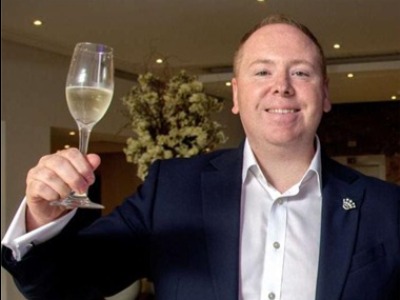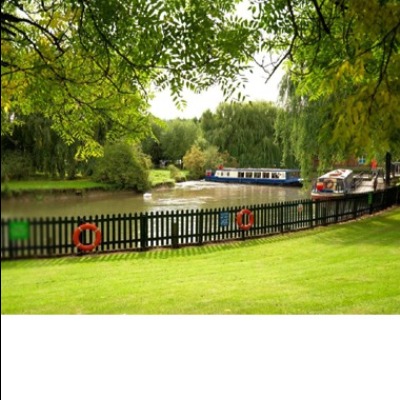The Realistic Optimist: my hospitality journey & how the Crowne Plaza, Stratford, positions itself for achievement
Robin Ford, General Manager, Crowne Plaza
Monday 18 November - White Swan Hotel - 6pm
This evening, Robin
will discuss his own journey, the positioning and role of the Crowne Plaza, Stratford-upon-Avon (including the hotel’s green credentials), and the ramifications of the fire in
the hotel.
Combining
25 years’ expertise with the ability to inspire and lead teams in a rapidly
evolving industry, Robin is dedicated to staying ahead of trends, embracing
innovation and always putting people first. People fuel his purpose and vision.
He
is passionate about nurturing talent within his teams, and his leadership style
focuses on collaboration, empathy, and continuous improvement. He is also a seasoned traveller, having lived in Australia and Ireland as well as in the UK.
Watch the presentation here
Report on the talk
Hospitality is a 24/7 job. Customer expectations have risen over the years and social media reviews play their part! Robin has growth mindset and is ambitious. The Crowne Plaza has 259 bedrooms, 15 meeting spaces, a ballroom which holds 550 people and an £18m turnover. It has about 200,000 visitors a year and there is 87% occupancy. Meetings and events are very important for the business and labour costs in particular have risen a lot recently. The hotel has 204 employees most of whom live locally.
The Crowne Plaza brand is a franchise, owned by IHG. Prosper Cap is the ultimate owner and Valor Hospitality manages it on its behalf. Essentially, the business is all about people and Robin considers himself to be the least important! Personality is more important than skills as skills can be taught. He believes that ‘Success is a journey, not a destination’ and his slogan is ‘Great People, Creating Excellence, Delivering the Best.’ Measurement is crucial to track achievement; creativity and innovation are vital, and he feels that it’s important to fail in order to learn.
The local community is also included in the hotel’s remit, so for example, £40,000 has been given to community groups. Unfortunately, this year there was less donated due to the fire. Being green is also increasingly on the agenda and the hotel measures its electricity use, but it is an old building (52 years old), and so not very efficient. The hotel is piloting a scheme where carbon use can be offset.
2024 has been a difficult year as there were two fires at the hotel. The first, in January, was minor. The second fire, on 29 April, caused quite a lot of damage, including the collapse of the reception ceiling, and temporary closure. There were 269 people at the hotel at the time, but all were fine. The evacuation went well, but the crisis planning previously arranged fell short of expectations. The Red Lion pub, however, opened its doors to the evacuees. One lesson learned was to have drinking water and blankets stored elsewhere for the evacuated guests. The cause of the fires is not known, but arson is suspected.
It cost £11m to repair the damage and to be able to open again. The fire was in a plant room and was well controlled, but the damage came from smoke and water. Moreover, the ballroom had had a new carpet just before the fire! There was investment in improvements while the hotel was closed. The ballroom and public areas and some bedrooms were enhanced. It was thought that the hotel would be closed for two weeks, but it was actually four months. Smoke got behind the plasterboard in the ballroom, so the walls and ceiling had to come down, however, most of the rooms were fine. All staff were retained and fully paid while the hotel was closed. The business is doing well, and the hotel is well prepared for 2025.
There were a number of interesting questions from the floor. Robin mentioned Dubai and how good it is at hospitality: good design along with customer satisfaction is most important. Staff pay is lower there, but there are more staff which is good for customers. There is more invested in training – two months before staff begin customer contact. Regarding hotels in Stratford, Robin believes that there is no need for more of them! He thinks that the BHS site could be used as a mixed retail/housing/community centre, that it currently creates a bad impression, and that it could do with tidying up! There is also a need to maximise other empty spaces in the town and for organisations to work together. The Crowne Plaza’s business is mainly corporate, with two days in the week being leisure-driven, and it could use more conference/meeting space. Previously, tourism was 30-40% of its business, but it’s now 6%, and it is less profitable. Green measures, like EV charging and accessible parking are also under consideration.










